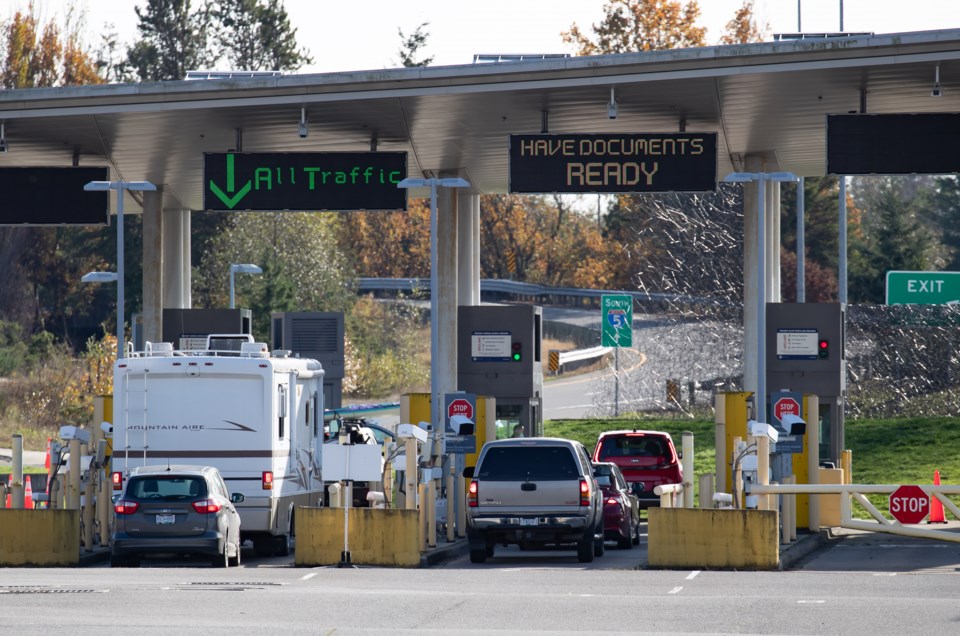EDITOR’S NOTE: This article originally appeared on The Trillium, a new Village Media website devoted exclusively to covering provincial politics at Queen’s Park.
U.S. president-elect Donald Trump’s tariff threat is a "major new uncertainty" for the Canadian economy, the governor of the Bank of Canada said Wednesday.
The Bank of Canada (BoC) announced its fifth consecutive interest rate drop and second consecutive 50-basis point reduction on Thursday, so the key rate now sits at 3.25 per cent.
While BoC governor Tiff Macklem said there’s been “a lot” of cuts since the summer — with the Bank taking two “bigger than normal steps” over the last two months — he hinted it’s now time to hit the brakes and take a more “gradual approach” to monetary policy.
How long that approach will last remains unclear, given the tariff threat. Trump has vowed to make good on his promise to hit Canada and Mexico with 25 per cent tariffs upon entering the White House on Jan. 20, just nine days before the Bank’s next interest rate decision.
“We can’t run policy on something that might happen. We have highlighted that it is a major uncertainty,” Macklem told Ottawa reporters.
He noted that among the open questions are whether those tariffs will come to pass, the level at which they will be set, how Ottawa will respond if it does not get an exemption and what impact possible retaliatory tariffs may have.
Those questions are among the topics premiers discussed with Prime Minister Justin Trudeau during a virtual meeting yesterday. Premiers have been pressing Ottawa for details of a plan to respond to those threats, and Procurement Minister Jean-Yves Duclos suggested the feds are “ready” to present that plan but stopped short of saying how much more it could cost Ottawa.
The Hill Times reported that it could come with a $1 billion price tag.
After that meeting, Finance Minister Chrystia Freeland said that “some” premiers "proactively" laid out products their provinces produce that could make up a package of retaliatory tariffs, which includes critical minerals and metals.
“We know this is a moment when Canada needs to be strong, smart and united,” she said. “We are determined and resolute to meet this moment.”
Public Safety Minister Dominic LeBlanc added he got "positive feedback” on the border plan to stem the flow of drugs like fentanyl, but stopped short of offering specifics. Instead he hinted that the forthcoming fall economic statement could shed more light on the matter.
The pair spoke after Ontario Premier Doug Ford expressed certainty that Trump will move on the tariffs. At a separate news conference, Ford said he pressed Ottawa for retaliatory tariffs targeted at energy exports.
Earlier in the day, NDP Leader Jagmeet Singh said tariffs would present a “direct threat” to workers’ livelihoods and urged Ottawa to take a “war room” approach that includes retaliatory tariffs. He also accused some Conservative premiers of sending “mixed messages” about how Canada will and should respond to Trump’s border concerns.
Cautious on criticism
The comments came as the government’s GST holiday legislation, which has yet to clear third reading in the Senate, is poised to take effect on Saturday. It also comes ahead of Finance Minister Chrystia Freeland’s fall economic statement (FES), which is expected to be tabled on Monday.
Macklem declined to comment on the possibility that Ottawa will ditch its self-imposed fiscal guardrails of keeping the deficit at $40.1 billion, admitting he is a “fan” of sticking to the cap but cautioning he'll need to read the mini-budget in its "totality" before elaborating.
Over the last few months, the feds have been taking head on their spending, with Macklem’s predecessor Stephen Poloz warning the country is in a “recession.”
Poloz argued that’s because economic weakness is being masked by population growth underpinned by strong immigration, though Macklem warned against using such terminology.
The governor explained a recession is typically defined by at least two consecutive quarters of negative economic growth and “widespread layoffs.”
While he said Canada is experiencing “slow” economic growth, Macklem defended the Bank’s efforts to lower inflation and said it has not led to mass job losses.
According to the governor, the GST holiday and the government’s proposed Working Canadians rebate, which remains a live issue given no opposition parties are yet on board, will boost household consumption that is already on the rise.
He added the GST pause could temporarily lower inflation to 1.5 per cent in January, though “that effect will unwind” when it ends in mid-February. Last month, inflation clocked in at two per cent, and the BoC is expecting it to remain within the one to three per cent target range over the coming years.
Senior deputy governor Carolyn Rogers noted the framework for that target range is reviewed every five years, with the next one set for 2026.
Rogers said the process has just started but vowed to consult with Canadians. Macklem added that he’ll shed more light on the review at his end-of-year speech on Monday.
